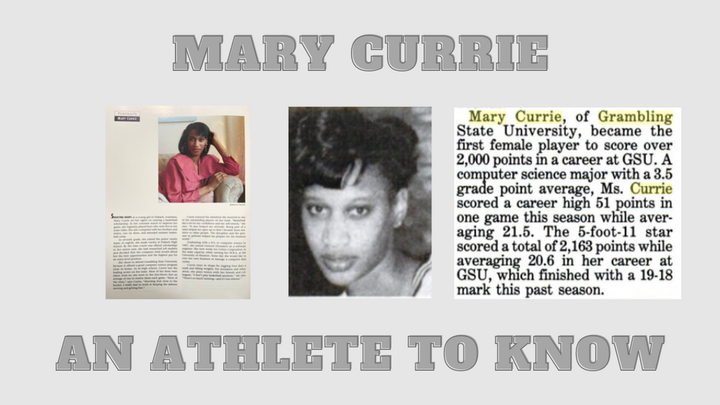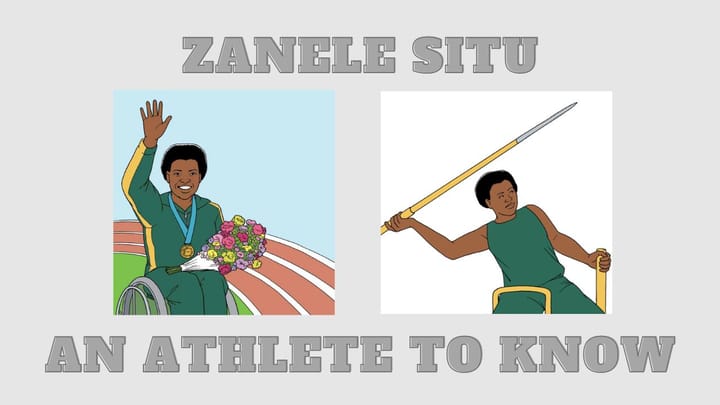The life and career of Briana Scurry
Briana Scurry is a legend, champion, gold medalist. If there’s an accolade to receive, she’s likely earned it.
Briana Scurry 2.0
Briana Scurry is a legend, champion, gold medalist. If there’s an accolade to receive, she’s likely earned it.
She was the first woman goalkeeper and first black woman elected into the National Soccer Hall of Fame. Her gear is displayed in the National Museum of African American History and Culture.
She’s a very big deal.
Scurry first earned a spot on the U.S. women’s national soccer team in 1994.
Twenty six years later, ten years past retirement, she spends a lot of time on Zoom – like the rest of the world. She frequently gives speeches online. In October, she revived her acting career, landing a role in a movie called High Expectations. Netflix is developing a movie about her 1999 World Cup championship team.
Scurry’s also writing a book about her life, which is slated to publish in 2022.
“It’s almost like I’m having a re-introduction of me, in a way,” she told The Black Sportswoman. “Bri 2.0. I’m almost 50 now instead of 20. I don’t mind.”
Where it all began
The book writing process reminds Scurry of experiences she hadn’t thought about in years.
She found a photo of one of her first memories involving sports: At 10 or 11, she was on a track team competing in the 4x100 race, running the first leg. She also played tackle football (full pads and helmet), basketball (her first love) and soccer.
Looking at that discovered photo years later, now as a mom herself, she sees herself the way her mother saw her. She isn’t able to ask her parents, the people who shaped her, questions that hadn’t occurred to her before this time in her life. Questions like: Where did you learn the things you taught me? Why, specifically, were you proud of me?
Ernest and Robbie Scurry supported and empowered Briana. She wanted to be an Olympian at 8 and decided she’d be competing at the 1996 Games at 12. Her parents never doubted her.
“I don’t think it was rare, that kind of support. But boy, did they have a lot of faith in me,” she said. “I could count on my hands the number of times they said no. On the big things, too.”
The traits she inherited from them helped her become one of the best goalkeepers ever. The mind and intellect come from her dad. The heart and drive, her mom.
As a goalkeeper, she needed to use her intelligence to get defenders in good positions to prevent shots on goal, or any situation where she had to use her body to make emergency saves.
There’s one save she’s famous for making: the only save of the 1999 Women’s World Cup Final Penalty Shootout. It took place in front of 90,000 people. This save helped the U.S. win the World Cup, a win that frequently gets credited with changing women’s sports. It also set the stage for women’s professional soccer in America.
Her college coach, Jim Rudy, taught her everything she needed to survive penalty kick shootouts. Like what happens when a person stands on one side of the ball vs. another, understanding foot placements, the likelihood of a player kicking left or right, reading body language and the numbers behind diving.
None of the above factored into the World Cup PK save, though.
“It was an instinct. In my mind, as I was walking into the goal, I said this particular kicker was going to be the one that I was going to save,” she said. “If I would have had to come back and she would have kicked it again, I would have saved it. There was no way that ball was going to go that I wasn't going to save it. And I can't explain to you why that is and how I know that.”
After the win, the team became famous. Scurry started getting first class seats, getting invited onto late night TV shows. A few days after the final, Scurry was still in Pasadena and a guy ran out of his car – which was still running – toward Scurry to give her a high five.
As she reflected, she remembers feeling like the press and opportunity after the final weren’t all that sweet, even if she couldn’t articulate why back then. She’s never had to hide the fact that she was a lesbian from anybody and never felt discriminated by her teammates for being herself. But Scurry was the only Black player with an important role on the national team for a long time. She was the only Black player on the field that day.
People have told her she should have gotten more credit, more notoriety, more media attention about her role in the title. Maybe it was because she was a goalkeeper? But goalkeepers since have gotten plenty of media attention.
Plus, when Scurry did get media, the questions she would get, she felt came with bias.
“‘Weren’t you off the line?’ and all this other stuff. And what about this and all that?” she recalls. “And I'm like, ‘Why? Why are you asking these questions? You see this? I just made the save we're talking about. Like, why are you asking me this stuff? Why is controversy always around me?
“Why are you asking these questions? You don't ask anybody else these questions.’”
Her next phase
Less than a year later, Scurry lost her starting spot on the national team.
The World Cup final was in July 1999. In early 2000, she showed up to camp 25 pounds heavier. By mid-April, she was back in shape. But the Olympics were in October. She was a little too late.
She only played 3 games in 2000, and didn’t play a minute in the Olympic Games. She wasn’t ready for the fame that arrived after the World Cup. She enjoyed herself too much. She stopped training and competing at the level that got her to stardom in the first place. She calls it self sabotage.
“And by the time I figured out how much trouble I was in, I was in way too much trouble,” she said. “And when I look back on it from my coaches point of view, I disrespected her (by) coming in like that. Not only her, I disrespected my own position as goalkeeper and starting keeper for the baddest, the most amazing women on the planet. How dare I, honestly, how dare I?”
By the time the Women’s United Soccer Association started playing in 2001, Scurry was focused on getting back to the national team. She moved to Atlanta to play with the Beat, a time she used to return to her ‘99 form. She let go of anger and bitterness, accepted responsibility.
“And then also, I had to apologize,” she said. “So I had a meeting with (USWNT coach April Heinrichs), and sat down with her. And told her I was sorry, and I was wrong, and that I understood what she did. And I didn't blame her. And that it took me a minute. And then when she finally did invite me back into camp in July of 2001, I showed up there, and basically was like, a completely different person.”
Scurry was named WUSA Goalkeeper of the Year in 2003. A year later, she had what she called the most memorable moment of her career: the 2004 Olympic final vs. Brazil. Her father passed away two months prior, and because her mom no longer was taking care of him, she was able to see Briana play in person. Also, Scurry knew people were saying the U.S. team was too old to win. She said that final was one of her best games, ever.
“If you ratcheted up your emotion, your love and your pain 100 times and feeling that at the same time, that's how that tournament was, for me,” she said. “I remember making saves that I was like, wow, I think my dad's in the goal with me. And that's also the game where Abby (Wambach) became Abby, when she rose for that header in that overtime and made that goal. That was the sunset of a lot of a lot of careers, but the rising of hers and for me, that was just a very special moment. Getting that medal put around my neck in the Olympic Games, and just knowing my dad was watching, and my mom was in the stands.”
Her national team career ended in 2008, and she played in the Women’s Professional Soccer league until 2010, when she suffered a career-ending concussion, and ultimately, a traumatic brain injury.
This started a new phase in her life. She’s become an advocate for concussion awareness and often discusses brain injuries, whether it’s involving soccer players or victims of domestic violence.
“The overall message that I have about it is, women who suffer traumatic brain injuries tend to have a more severe situation, and also it tends to be longer, but they tend to be silent about it, and not seek the help and assistance and medical care that they need,” she said. “And so often doctors say, ‘Oh, well, you're fine.’ And t’his is as good as it gets.’ And I say, don't accept that.”
The times where she was uncertain about what was going on in her brain was scary. But because the injury led her to where she is now, she says she wouldn’t change it.
“That experience of having that injury and ending my career the way it did, gave life to my current state,” she said. “I mean, I don't meet my wife without that head injury. And so I don't curse it anymore, now I'm grateful for it. Even though I went through three years of hell dealing with that, and almost ended my own life, and thank God I didn't. Because there was so much, so much more to live.”



Comments ()